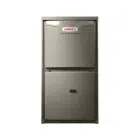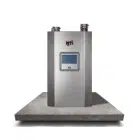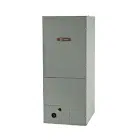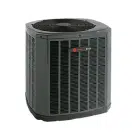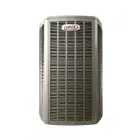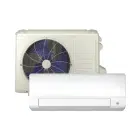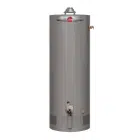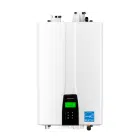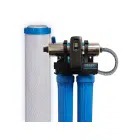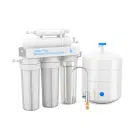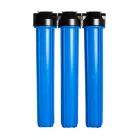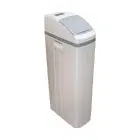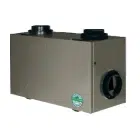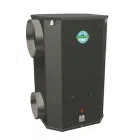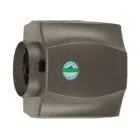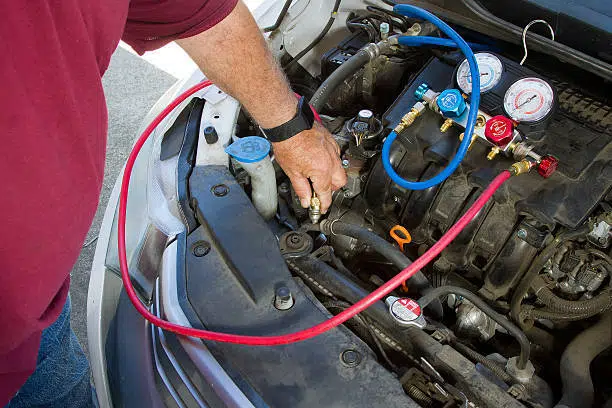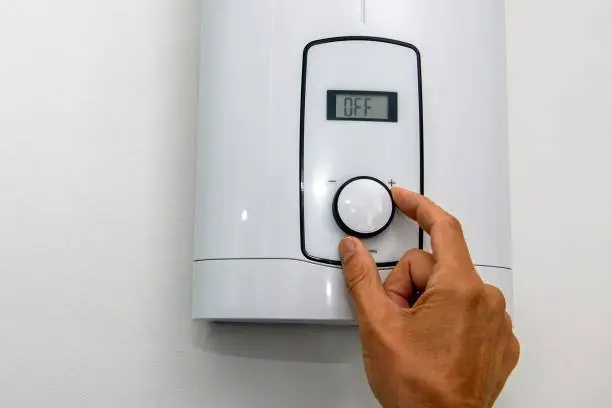
Table of Contents
As we move into 2024, the way we think about home heating and energy efficiency is evolving rapidly. Gone are the days when a bulky, inefficient water heater in your basement was the norm. Today, more homeowners in Canada are making the switch to tankless water heaters and demand water heaters, and for good reason. These systems are more than just a trend—they represent a smarter, more sustainable approach to home comfort.
What Is a Tankless Water Heater?
First things first: What exactly is a tankless water heater or demand water heater? Unlike traditional water heaters that store gallons of hot water in a large tank, tankless water heaters heat water only when you need it. When you turn on the hot water tap, cold water travels through a pipe into the unit, where it’s quickly heated by either a gas burner or an electric element. In a matter of seconds, you’ve got a steady stream of hot water flowing out of your tap, ready to be used.
This on-demand process eliminates the need for a storage tank, which is why these systems are often referred to as “tankless water heaters” or “demand water heaters.” But the real magic lies in what this means for your home and your wallet.
The Benefits: Why Tankless Is Worth the Upgrade
Switching to a tankless water heater in Canada isn’t just about jumping on the latest home improvement bandwagon. It’s about making a long-term investment in your home’s efficiency and comfort. From our experience working with countless homeowners across Canada, the benefits are clear.
Energy Efficiency is the standout advantage. Traditional water heaters constantly heat and reheat hot water to maintain a set temperature, which can lead to significant energy waste—especially in colder climates like Canada. Tankless water heaters, however, only use energy when you need hot water. This can translate to substantial savings on your energy bills. We’ve seen clients reduce their water heating costs by as much as 30%, which is no small feat considering water heating typically accounts for around 20% of a home’s energy use.
Space Saving is another big win. Traditional water heaters can take up a significant amount of space, often in basements or utility closets where space is already at a premium. In contrast, tankless water heaters are compact and can be mounted on a wall, freeing up valuable floor space. This is especially beneficial in urban homes or smaller properties where every square foot counts. We’ve helped many homeowners reclaim valuable storage space simply by upgrading to a demand water heater.
Unlimited hot Water is a game-changer for many families. With a traditional tank, you might run out of hot water after a few long showers or a full load of laundry. Not so with a tankless water heater. Because the water is heated as it passes through the unit, you can enjoy an endless supply of hot water. We’ve heard from clients with large families who were tired of fighting over who gets to shower first—those days are now a thing of the past.
Long-Term Cost Savings can’t be overlooked. While the upfront cost of a tankless water heater can be higher than a traditional tank system, the long-term savings are significant. These units typically last longer—often 20 years or more compared to the 10-15 years for a traditional tank. Plus, the energy savings can help offset the initial investment over time. One of our customers did the math and realized they’d break even on their investment in just a few years thanks to lower energy bills.
Environmental Impact is increasingly a consideration for homeowners. Because tankless water heaters are more efficient, they contribute to a smaller carbon footprint. Using less energy means producing fewer greenhouse gases, which is a win for the environment and aligns with the growing trend of sustainable living.
What to Consider Before Making the Switch
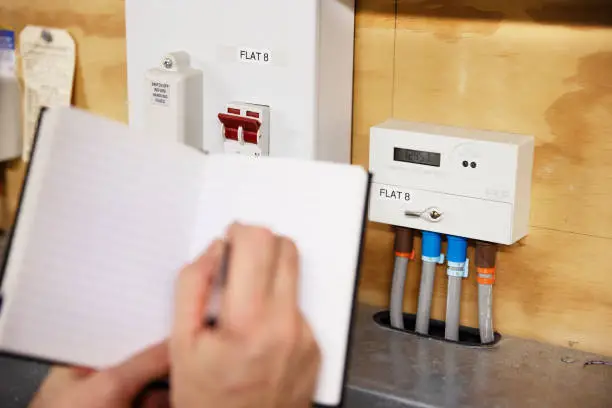
While the benefits are impressive, it’s important to weigh them against a few considerations before deciding if a demand water heater is right for you.
The initial cost is often the first hurdle. Yes, tankless water heaters typically cost more upfront than traditional water heaters. This is due to both the cost of the unit and the installation. If you’re upgrading from a conventional system, you may also need to invest in upgrading your home’s electrical system or gas lines to accommodate the new technology. However, based on our experience, many homeowners find that the long-term savings make the initial outlay worthwhile.
Do you want to know how much it costs to install a new tankless water heater? Read our previous article via the link below.
https://thehvacservice.ca/understanding-tankless-water-heater-installation-costs/
Installation can also be more complex than for a traditional water heater. Tankless water heaters require precise installation to function correctly and safely. This means you’ll need a qualified professional to handle the job—someone who understands the specific requirements of demand water heaters. We’ve found that improper installation is the number one cause of issues with these units, so it’s crucial to work with a contractor who has experience with demand water heaters.
Tankless water heater maintenance is another factor to keep in mind. While tankless water heaters generally require less maintenance than traditional tanks, they’re not completely maintenance-free. In areas with hard water, for example, scale can build up in the system, reducing efficiency and potentially causing damage over time. Regular descaling is necessary to keep the unit running smoothly. From our experience, homeowners who stick to a maintenance schedule see better performance and longer lifespans from their demand for water heaters.
Pros and Cons of Upgrading to Tankless or Demand Water Heaters
Pros | Cons |
|---|---|
Energy Efficiency:
Saves on utility bills by heating water only when needed. | Higher Initial Cost:
More expensive upfront compared to traditional water heaters. |
Space-Saving: Compact, wall-mounted units free up space. | Complex Installation: Requires professional installation, possibly with upgrades to gas or electrical lines. |
Unlimited Hot Water: Continuous supply of hot water on demand. | Maintenance: Requires regular descaling, especially in areas with hard water. |
Long-Term Savings: Longer lifespan and reduced operating costs over time.
| Sizing Requirements: May need multiple units for larger homes.
|
Eco-Friendly: Reduces carbon footprint by using less energy. | Power Demand: Electric models might require electrical upgrades.
|
Advanced Features: Includes smart tech like Wi-Fi for remote monitoring.
| Delay: Slight delay before hot water reaches distant taps.
|
Why 2024 Is the Year to Upgrade
So, why consider making the switch in 2024? There are a few compelling reasons.
Technological Advancements have made tankless water heaters more efficient and user-friendly than ever before. Today’s units are smarter, with features like Wi-Fi connectivity, allowing you to monitor and control your water heater remotely. This means you can adjust settings to maximize efficiency based on your household’s needs, no matter where you are. We’ve seen a rise in interest from tech-savvy homeowners who appreciate these added conveniences.
Moreover, Incentives and Rebates are increasingly available to help offset the cost of energy-efficient home upgrades. Across Canada, various provinces and municipalities are offering rebates for homeowners who switch to more sustainable technologies like demand water heaters. In some cases, these incentives can significantly reduce the upfront cost, making the transition even more appealing. We always recommend checking local programs to see what savings might be available.
Rising Energy Costs are another factor. With energy prices on the rise, particularly in colder regions where heating costs can skyrocket, a tankless water heater is a proactive way to keep your utility bills in check. We’ve heard from homeowners who were initially skeptical but are now thrilled with how much they’re saving each month—especially during those long Canadian winters.
Finding the Right Fit for Your Home
Choosing the right demand water heater depends on several factors, and it’s not a one-size-fits-all situation.
Sizing is crucial. Tankless water heaters come in different capacities, and selecting the right size depends on your household’s hot water demands. A unit that’s too small won’t meet your needs, while one that’s too large can lead to unnecessary energy use. We’ve helped clients assess their usage patterns to ensure they get a system that’s perfectly tailored to their home.
Fuel Type is another consideration. Tankless water heaters are available in both electric and gas models, and each has its pros and cons. Electric models are typically easier to install but might not be as powerful as gas units, which are better suited for larger households or homes with higher hot water demands. We’ve installed both types, and the right choice often comes down to your home’s existing infrastructure and your personal preferences.
Finally, Professional Installation is non-negotiable. A tankless water heater is an advanced piece of equipment, and it needs to be installed correctly to function safely and efficiently. We can’t stress enough the importance of choosing a qualified, experienced installer. We’ve seen too many cases where homeowners tried to cut corners, only to face expensive repairs down the line.
Did you know that a tankless water heater uses 30% less energy than a traditional one? Find out more about energy and money savings via the link below.
https://natural-resources.canada.ca/energy-efficiency/products/water-heaters/tankless/14541
Finding the Right Fit for Your Home
Choosing the right demand water heater depends on several factors, and it’s not a one-size-fits-all situation.
Sizing is crucial. Tankless water heaters come in different capacities, and selecting the right size depends on your household’s hot water demands. A unit that’s too small won’t meet your needs, while one that’s too large can lead to unnecessary energy use. We’ve helped clients assess their usage patterns to ensure they get a system that’s perfectly tailored to their home.
Fuel Type is another consideration. Tankless water heaters are available in both electric and gas models, and each has its pros and cons. Electric models are typically easier to install but might not be as powerful as gas units, which are better suited for larger households or homes with higher hot water demands. We’ve installed both types, and the right choice often comes down to your home’s existing infrastructure and your personal preferences.
Finally, Professional Installation is non-negotiable. A tankless water heater is an advanced piece of equipment, and it needs to be installed correctly to function safely and efficiently. We can’t stress enough the importance of choosing a qualified, experienced installer. We’ve seen too many cases where homeowners tried to cut corners, only to face expensive repairs down the line.
Did you know that a tankless water heater uses 30% less energy than a traditional one? Find out more about energy and money savings via the link below.
https://natural-resources.canada.ca/energy-efficiency/products/water-heaters/tankless/14541
Success Stories: Canadian Homeowners Who Made the Switch
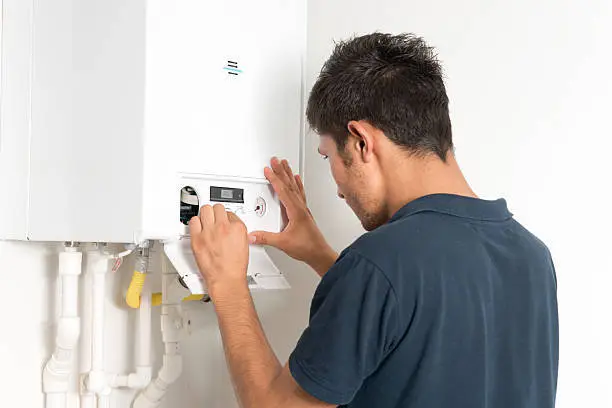
To bring this all into perspective, let’s talk about a few success stories. One family we worked with in Toronto was dealing with constantly running out of hot water. With three teenagers in the house, showers were a constant battle. They decided to make the switch to a tankless water heater, and the difference was night and day. Not only did they get unlimited hot water, but their energy bills also dropped by 25% in the first year.
In another case, a couple in Edmonton was renovating their small home and wanted to maximize space. By switching to a demand water heater, they freed up an entire closet, which they converted into much-needed storage space. They were also thrilled with the system’s energy efficiency, which helped them achieve their goal of making their home as green as possible.
Wrapping Up: Is a Tankless Water Heater Right for You?
At the end of the day, the decision to switch to a tankless water heater comes down to your priorities. If you value energy efficiency, space-saving design, and the convenience of endless hot water, it’s a great option to consider. Yes, the initial cost is higher, but the long-term benefits often outweigh this investment.
For Canadian homeowners, especially those looking to reduce their energy footprint and save on utility bills, 2024 is an ideal year to make the switch. With advancements in technology, available rebates, and rising energy costs, the stars are aligning to make demand water heaters the smart choice for the future.
If you’re ready to explore your options, we’re here to help. At HVAC Service Solutions, we’ve got the experience and expertise to guide you through the process—from choosing the right system to ensuring it’s installed perfectly. Let’s make 2024 the year you upgrade your home’s comfort and efficiency.
Frequent Asked Questions
What is a tankless water heater, and how does it work?
A tankless water heater, also known as an on-demand water heater, heats water directly without using a storage tank. When you turn on the hot water tap, cold water travels through a pipe into the unit. An electric element or a gas burner then heats the water as it flows through the heat exchanger. This provides a continuous supply of hot water without the need for a bulky storage tank. Since water is heated only as needed, tankless heaters can be more energy-efficient compared to traditional tank systems, potentially reducing your energy bills. However, they may have limitations in terms of flow rate, so it’s important to choose a model that matches your household’s hot water demand.
Are tankless water heaters more energy-efficient than traditional tank heaters?
Yes, tankless water heaters are generally more energy-efficient than traditional tank heaters. Traditional tank heaters continuously heat and store a large volume of water, which can lead to heat loss over time. Tankless heaters, on the other hand, only heat water on demand, which minimizes standby heat loss. This efficiency can lead to reduced energy consumption and lower utility bills. However, the actual savings depend on factors such as the size of the unit, your hot water usage, and the type of fuel used (electric or gas). Additionally, the initial cost of purchasing and installing a tankless water heater can be higher than that of a traditional tank heater.
What size tankless water heater should I choose for my home?
Choosing the right size for a tankless water heater depends on your household’s hot water needs and the climate. You’ll need to consider factors such as the number of bathrooms, the number of fixtures (sinks, showers, etc.), and your peak hot water demand (the maximum amount of hot water used at one time). In colder climates like those in Canada, incoming water temperatures are lower, which means the unit will need to work harder to heat the water to the desired temperature. Manufacturers typically provide sizing calculators that can help you determine the appropriate size based on these factors. It’s also beneficial to consult with a professional installer to ensure you choose a unit that meets your specific requirements.
What are the benefits of installing a tankless water heater in a Canadian climate?
In a Canadian climate, where winters can be particularly harsh, tankless water heaters offer several benefits. First, they provide a continuous supply of hot water, which is useful during peak usage times or when multiple fixtures are being used simultaneously. Second, they can save space since they are compact and wall-mounted, unlike traditional tank heaters that require a large storage tank. Additionally, tankless heaters are less susceptible to freezing, especially if installed correctly with proper insulation and in a climate-controlled environment. However, the colder incoming water temperatures in Canada might require a more powerful unit or multiple units to ensure consistent performance.
How do I maintain a tankless water heater?
Regular maintenance is crucial for ensuring the efficient operation of a tankless water heater. First, you should periodically flush the system to remove mineral buildup, especially if you have hard water. This involves running a vinegar or descaling solution through the unit, which helps prevent scale from clogging the heat exchanger. It’s also important to check and replace filters if your unit has them, as these can become clogged with debris. Inspecting the unit for any signs of leaks, corrosion, or other issues is also recommended. Many manufacturers suggest annual maintenance by a professional to keep the system in optimal condition and to ensure that any warranty requirements are met.
What are the common issues with tankless water heaters?
Common issues with tankless water heaters include inconsistent water temperature, reduced flow rate, and scaling. Inconsistent temperatures can occur if the unit is undersized for your household’s needs or if there are fluctuations in water pressure. Reduced flow rate can be a result of mineral buildup or a clogged filter. Scaling, which is the accumulation of mineral deposits, can affect the unit’s efficiency and lifespan, particularly in areas with hard water. Additionally, tankless heaters may have more complex installation requirements compared to traditional units, which can lead to installation problems if not done properly. Regular maintenance and proper installation are key to avoiding these issues.
What are the installation requirements for a tankless water heater?
Installing a tankless water heater typically requires more specific considerations than traditional tank heaters. The installation location should allow for adequate ventilation, especially for gas-powered units, to prevent the buildup of harmful gases. The unit must be installed in a location where it can be easily accessed for maintenance and servicing. Electrical or gas connections need to meet the manufacturer’s specifications, and in some cases, upgrades to your home’s electrical system or gas line may be necessary. Additionally, proper insulation and protection against freezing are important in colder climates. Hiring a professional installer familiar with tankless systems is recommended to ensure compliance with local codes and optimal performance.
How long do tankless water heaters last compared to traditional tanks?
Tankless water heaters generally have a longer lifespan compared to traditional tank heaters. On average, a tankless water heater can last between 15 to 20 years, while traditional tank heaters typically last around 10 to 15 years. The extended lifespan of tankless units can be attributed to their design, which does not involve a large storage tank that can corrode or develop leaks over time. Regular maintenance and proper care can help maximize the lifespan of both types of water heaters. However, it’s important to factor in the cost of maintenance and potential repairs when considering the overall longevity and value of a tankless water heater.
Can I install a tankless water heater myself, or should I hire a professional?
While some homeowners might be tempted to install a tankless water heater themselves, it is generally advisable to hire a professional. Proper installation is crucial for ensuring the unit operates efficiently and safely. Tankless water heaters often require specific electrical or gas connections, proper venting, and sometimes modifications to existing plumbing. Incorrect installation can lead to issues such as poor performance, safety hazards, or even damage to the unit. A professional installer has the expertise to ensure that the unit is installed according to local codes and manufacturer guidelines, which can help avoid potential problems and ensure that your warranty remains valid.
Are there any rebates or incentives available for installing a tankless water heater in Canada?
Yes, there are often rebates and incentives available for installing energy-efficient tankless water heaters in Canada. Various federal and provincial programs may offer financial incentives to encourage homeowners to upgrade to more energy-efficient appliances. For example, the Canada Greener Homes Grant provides rebates for energy-efficient home improvements, which may include tankless water heaters. Additionally, some provincial governments and utility companies offer their own rebates or incentives. It’s a good idea to check with local government programs, utility providers, and energy efficiency organizations to find out what incentives might be available in your area. Additionally, consulting with a professional installer can help you navigate these programs and maximize potential savings.
Share

